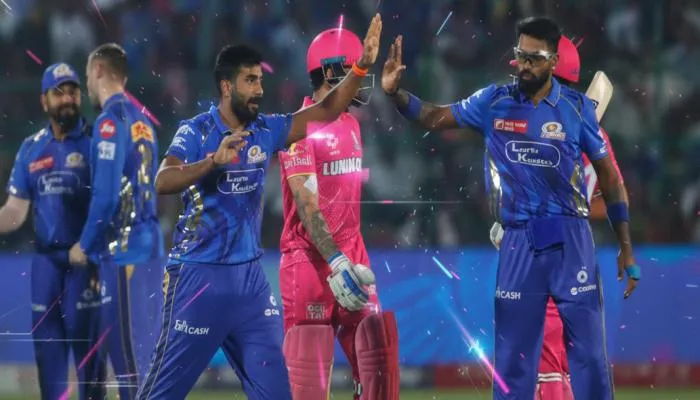Tamil Sex Abuse Case: 30 Years Jail, ₹90K Fine for Convict
Introduction
I still remember the shock I felt when I first heard the news—a senior official from Ana University convicted for sexually abusing a student on campus. It wasn’t just another crime headline. It was a brutal reminder of how vulnerable students, especially women, remain even in places meant to nurture their future.
The Tamil sex abuse case sparked outrage across Tamil Nadu and beyond. And now, in a landmark verdict, the Mahila Court in Chennai sentenced Nana Shakran to 30 years in jail with a ₹90,000 fine. The case has thrown light on the systemic rot inside educational institutions and sparked political debates between DMK and AIADMK.
Let’s dive deep into what really happened, how justice was delivered swiftly, and what this means for university campuses across India.
Table of Contents
Tamil Sex Abuse Case — What Happened?
The case revolves around Nana Shakran, a senior administrative figure at Ana University in Tamil Nadu. Allegedly, he exploited his position to sexually assault a student on campus. The survivor came forward with courage, sparking both outrage and demands for immediate justice.
Here’s what we know:
- The assault reportedly occurred inside the university premises.
- The survivor was a student who accused Nana of demanding sexual favors in exchange for academic support and recommendations.
- What started as whispers within the university walls quickly turned into a major scandal, drawing media attention and public outcry.
The accused was arrested, and the case was taken up by a special investigation team under the Mahila Court, Chennai.
Court Verdict: 30 Years Jail and ₹90,000 Fine
On May 28, the Mahila Court in Chennai found Nana Shakran guilty on all 11 charges. On the sentencing day, the judge didn’t hold back. Nana was handed:
- 30 years of rigorous imprisonment
- ₹90,000 in fines
This wasn’t a generic conviction. According to reports, each charge carried separate prison terms, reflecting the seriousness of the assault and exploitation of authority.
Charged Under 11 Sections, Including POCSO and IPC
Although the survivor was legally an adult, the severity of the exploitation, intimidation, and abuse of power led the court to invoke multiple sections of IPC and laws pertaining to abuse in academic institutions.
Here’s a quick overview:
mathematicaCopyEditPlain-text Table: Key Charges Against Nana Shakran
| Section / Act | Offense | Penalty |
|--------------------------|-------------------------------------|--------------------------|
| IPC 376 | Rape | 7 years to life |
| IPC 354 | Outraging modesty of a woman | Up to 2 years + fine |
| IPC 506 | Criminal intimidation | Up to 7 years |
| Sexual Harassment Act | Abuse of authority in institutions | Fine + imprisonment |
| Final Sentence | Cumulative punishment | 30 years + ₹90K fine |
Survivor’s Strength and Swift Justice
Justice was swift—the entire trial was wrapped up in under 6 months, which is rare in such sensitive and high-profile cases in India.
A Political Storm: DMK vs AIADMK
As the verdict came in, political tensions rose. DMK leaders called it a “victory for justice”, while AIADMK questioned whether the full network behind Nana had been exposed.
A DMK Spokesperson said:
“We welcome this judgment wholeheartedly. This sends a message that any assault on women will not be tolerated.”
AIADMK responded:
“This is not just about one person. There’s a nexus, and others behind the scenes must also be held accountable.”
This case, like many others before it, turned into a political blame game, even as citizens hoped for institutional accountability.
Related Posts
- POCSO Act 2012 Explained: Punishments & PDF Download
- Sexual Harassment Act India: POSH 2013 Explained
Academic Institutions Under Fire
Unfortunately, the Tamil Nadu university sex abuse case isn’t an isolated incident. Across India, many universities have seen similar abuse of power.
From complaints not being taken seriously to internal committees shielding powerful figures, the system is broken. What makes this case different is the survivor’s courage and the court’s rapid response.
Internal Complaints Committees (ICCs)
Every university is required by UGC to have an ICC under the Sexual Harassment Act (2013). But many are either inactive or biased.
“The system protects the powerful and silences the victims,” one student anonymously told a local reporter.
Media Coverage: A Double-Edged Sword
The Tamil media widely covered the case. But there’s been criticism over sensationalism and compromising victim anonymity.
Some media houses respected journalistic ethics. Others focused on lurid headlines using phrases like Tamil sex and university scandal—terms that may draw attention but hurt survivor dignity.
Quote Wall: Justice and Responsibility
“Justice will not be served until those who are unaffected are as outraged as those who are.” – Benjamin Franklin
“When truth is replaced by silence, the silence is a lie.” – Yevgeny Yevtushenko
“The arc of the moral universe is long, but it bends toward justice.” – Martin Luther King Jr.
“Injustice anywhere is a threat to justice everywhere.” – Martin Luther King Jr.
What Can Students and Parents Do Now?
If you’re a student or parent, here are some things to keep in mind:
- Know your rights. Learn about ICCs, UGC rules, and reporting channels.
- Document everything. Any inappropriate interaction should be recorded (email, text, screenshot).
- Build peer support. Survivors often face backlash—unity matters.
- Don’t be silent. Even anonymous reporting helps build a case.
- Push for transparency. Demand that your institution publishes annual reports of harassment complaints and actions taken.
FAQs: Tamil Sex Abuse Case
What is the Tamil sex abuse case all about?
A senior Ana University official, Nana Shakran, was convicted of sexually assaulting a student and was sentenced to 30 years in jail.
Who was convicted in the Ana University case?
Nana Shakran, a senior staff member at Ana University, was found guilty of all 11 charges.
Why is the 30-year sentence significant?
It reflects the court’s zero-tolerance stance and the cumulative sentencing under multiple IPC sections.
What role did politics play in this case?
Both DMK and AIADMK politicized the issue—DMK highlighting swift justice, while AIADMK accused the government of covering up larger networks.
What can institutions do to prevent such abuse?
Stronger ICCs, annual audits, anonymous reporting tools, and public accountability can help prevent future abuse.
Conclusion
The Tamil sex abuse case isn’t just a headline. It’s a wake-up call for every university in India. The conviction of Nana Shakran is a rare example of swift justice, but questions remain about institutional rot and political shielding.
As students, parents, and citizens, we must stay vigilant. Justice doesn’t stop at conviction—it starts with reform, accountability, and safer campuses.
Call to Action
This story deserves to be seen, discussed, and shared. If you found it important, please leave a comment, share it with friends, or explore our other related articles. Together, we can create a culture of zero tolerance for abuse—and protect every student’s right to safety and dignity.







